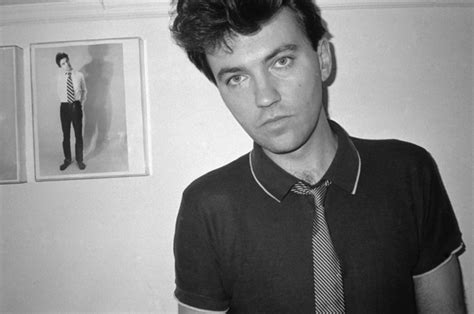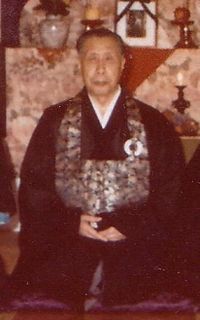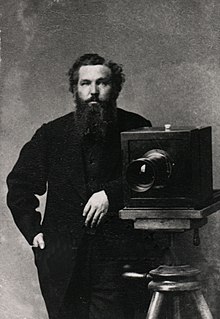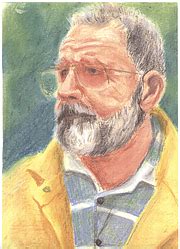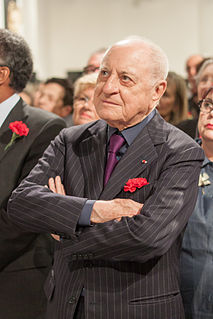Top 637 Zen Quotes & Sayings - Page 2
Explore popular Zen quotes.
Last updated on April 14, 2025.
I got interested in Zen when I was a teenage beatnik on the streets of San Francisco. And it was my interest in Zen, in part, that got me into the Marine Corps, because that was a ticket to Asia. So I spent a couple of years on Okinawa and began reading and thinking about how I wanted to go about conducting my life.
Zen is to religion what a Japanese "rock garden" is to a garden. Zen knows no god, no afterlife, no good and no evil, as the rock-garden knows no flowers, herbs or shrubs. It has no doctrine or holy writ: its teaching is transmitted mainly in the form of parables as ambiguous as the pebbles in the rock-garden which symbolise now a mountain, now a fleeting tiger. When a disciple asks "What is Zen?", the master's traditional answer is "Three pounds of flax" or "A decaying noodle" or "A toilet stick" or a whack on the pupil's head.
Jared had his back to the wall, which Kami thought was a reflex when he was uncomfortable. She wanted to shield him. “He was doing some—Zen jogging,” she claimed. Jared flicked her an incredulous glance. “Yes,” he said slowly. “Zen jogging. I wasn’t wearing that many clothes because—that’s part of the process. You’re meant to commune with the elements. Normally, I wouldn’t have worn my jeans, but I put them on because I know the English are a modest people.
Walking is Zen, sitting is Zen. Then what will be the quality? Watchfully alert, joyously unmotivated, centered, loving, flowing, one walks. And the walking is sauntering. Loving, alert, watchful, one sits, unmotivated - not sitting for anything in particular, just enjoying how beautiful just sitting doing nothing is, how relaxing, how restful.
Regarding R. H. Blyth: Blyth's four volume Haiku became especially popular at this time [1950's] because his translations were based on the assumption that the haiku was the poetic expression of Zen. Not surprisingly, his books attracted the attention of the Beat school, most notably writers such as Allen Ginsberg, Gary Snyder and Jack Kerouac, all of whom had a prior interest in Zen.
Zen's greatest contribution is to give you an alternative to the serious man. The serious man has made the world, the serious man has made all the religions. He has created all the philosophies, all the cultures, all the moralities; everything that exists around you is a creation of the serious man. Zen has dropped out of the serious world. It has created a world of its own which is very playful, full of laughter, where even great masters behave like children.
The great achievement of Zen Buddhism, and all of its cultural expressions in painting or the tea ceremony or rock gardens, is a rejection of earlier Buddhist ideas which were dependent
upon narrative - all the mythological creatures that populate the Buddhist galaxy. Zen insisted on the real located in nature.
The most important part of the practice is for the question to remain alive and for your whole body and mind to become a question. In Zen they say that you have to ask with the pores of your skin and the marrow of your bones. A Zen saying points out: Great questioning, great awakening; little questioning, little awakening; no questioning, no awakening.
The thing about Zen is that it pushes contradictions to their ultimate limit where one has to choose between madness and innocence. And Zen. suggests that we may be driving toward one or the other on a cosmic scale. Driving toward them because, one way or the other, as madmen or innocents, we are already there. It might be good to open our eyes and see.
Zen enriches no one. There is no body to be found. The birds may come and circle for a while in the place where it is thought to be. But they soon go elsewhere. When they are gone, the "nothing," the "no-body" that was there, suddenly appears. That is Zen. It was there all the time but the scavengers missed it, because it was not their kind of prey.
My ethics, my sense of morality, my work ethic, my sense of compassion for suffering humanity, all of that comes directly out of the practice of poetry, as does my Buddhist practice. Poetry is a very important element in the history of Buddhism in general and in Zen in particular. It was really Zen that motivated me to change the way I perceive the world.
Until today, it really pissed me off that I'd become this totally centered Zen Master and nobody had noticed. Still, I'm doing the little FAX thing. I write little HAIKU things and FAX them around to everyone. When I pass people in the hall at work, I get totally ZEN right in everyone's hostile little FACE.
Zen, on the other hand, is not so dogmatically sterile, though there are certainly traces and more than traces of this austerity. However, with Zen we have not only the void, but the fertile void. The ink lines in a sumi-e painting show this fertility of the void ever ready to brim over into existence.
Not thinking about anything is zen. Once you know this, walking, standing, sitting, or lying down, everything you do is zen. To know that the mind is empty is to see the buddha.... Using the mind to reality is delusion. Not using the mind to look for reality is awareness. Freeing oneself from words is liberation.
A very enjoyable meditation on the curious thing called 'Zen' -not the Japanese religious tradition but rather the Western clich of Zen that is embraced in advertising, self-help books, and much more. . . . Yamada, who is both a scholar of Buddhism and a student of archery, offers refreshing insight into Western stereotypes of Japan and Japanese culture, and how these are received in Japan.
Zen is really just a reminder to stay alive and to be awake. We tend to daydream all the time, speculating about the future and dwelling on the past. Zen practice is about appreciating your life in this moment. If you are truly aware of five minutes a day, then you are doing pretty well. We are beset by both the future and the past, and there is no reality apart from the here and now.
I would have thought that I would have become one of those parents - just because it's my nature to be such a perfectionist - that anything falling short, I would have seen as a failure. But something has happened to me over the past few years - it's not Zen, believe me, I'm not at all Zen - but I'm so appreciative of even the chaos.
The practice of Zen mind is beginner's mind. The innocence of the first inquiry—what am I?—is needed throughout Zen practice. The mind of the beginner is empty, free of the habits of the expert, ready to accept, to doubt, and open to all the possibilities. It is the kind of mind which can see things as they are, which step by step and in a flash can realize the original nature of everything.
The secret of this kind of climbing, is like Zen. Don't think. Just dance along. It's the easiest thing in the world, actually easier than walking on flat ground which is monotonous. The cute little problems present themselves at each step and yet you don't hesitate and you find yourself on some other boulder you picked out for no special reason at all, just like zen.~ Japhy











